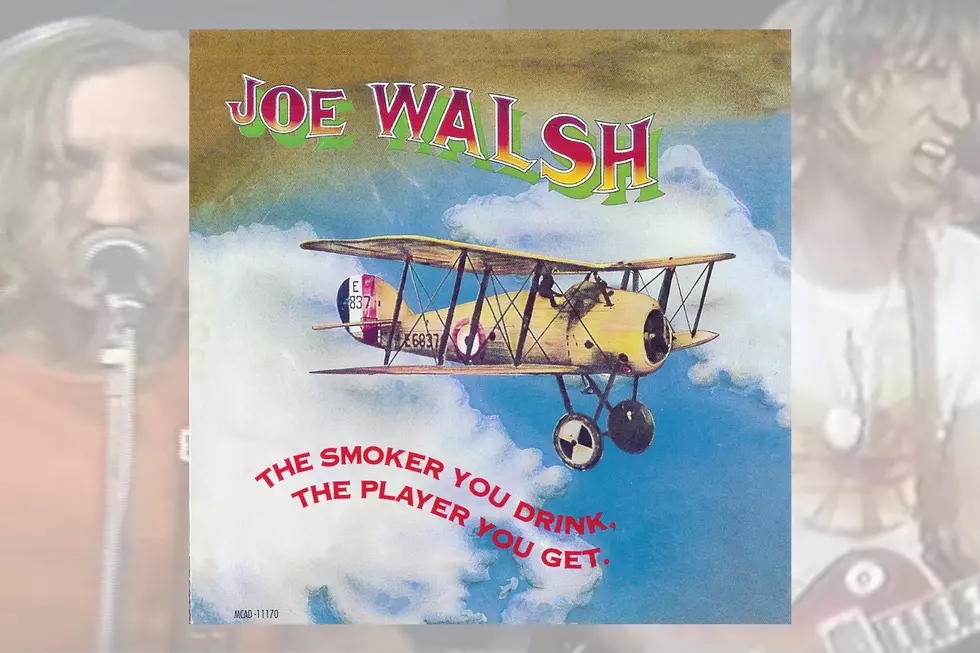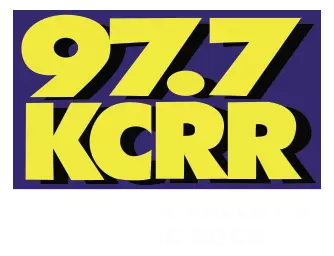
How Joe Walsh Barnstormed Through ‘The Smoker You Drink … ’
When Joe Walsh left the James Gang at the end of 1971, he knew he was making the right decision – but he was unsure of what to do next.
“I was frustrated just being the only melodic instrument [in the band],” he later told In the Studio. “I wanted to expand and try something else. I also didn’t want to stereotype myself into an ‘American rocking guitar player.’ I felt like there was more of a musician than that in me.”
Walsh got together with old Cleveland rival Joe Vitale and bassist Kenny Passarelli to form a new band called Barnstorm. They released a self-titled debut in 1972, credited to Walsh, and watched it go nowhere – not because the music on the record was bad (it was actually very good), but because of industry politics.
“We weren’t doing very well because powers that be didn’t want me to leave the James Gang, but I felt I had to,” Walsh told Redbeard. “[The] powers that be [were] old management, James Gang management and the record company wanted to discourage my solo attempt, Barnstorm, hoping I would go back with the James Gang. They didn’t want people to know that I wasn’t in the James Gang. That’s why the first Barnstorm album didn’t do very well.”
Having blown through his savings supporting his new band, Walsh was in a bit of a pickle. What he needed was a hit, though hits were not much of a consideration as he and Barnstorm were working on his second solo outing, which would be issued as The Smoker You Drink, the Player You Get on June 18, 1973. The record wound up containing one of his most indelible hits, and the inspiration for it came when Walsh least expected it: while he was doing yard work.
Listen to Joe Walsh Play 'Rocky Mountain Way'
“We had the Smoker album pretty much done,” he told Rolling Stone, “except we had this one track that was an instrumental. I couldn't think of any words and everybody was patiently waiting for me to come up with something. One day I was in my backyard in Boulder mowing the lawn. And then I looked up ... and there were the Rocky Mountains. It was summer, but you could still see snow on the back range. It just hit me how beautiful it all was, 5,000 feet up. And that was it — the words came: ‘Spent the last year Rocky Mountain way, couldn't get much higher.'"
Nature was also the center of the introspective “Meadows,” whose refrain “I'm out here in the meadow / Part of an old stone wall” came from a morning drive Walsh once took in Massachusetts.
“I was driving around one morning and it was foggy,” Walsh told Redbeard, “and I looked across this meadow, and it was beautiful. There were horses. It was a horse farm, and there was this old falling-down barn. And the thing I noticed for the first time was there was about a half-mile wall; and there’s walls all over New England that used to be property dividers — the farmers would pile rocks up along the border of their land to clear the land to farm. ... And I was kind of lonely and it was a real foggy morning and I was in a very thoughtful mood.”
“Wolf” makes mention of a meadow, as well, but it’s just in passing – and it might go right by you, thanks to the arpeggios Walsh is playing on his acoustic guitar. It’s almost menacing; the tension is coiled throughout the song, but it never gets released.
Listen to Joe Walsh Perform 'Meadows'
There are other details that make the The Smoker You Drink, the Player You Get special. Pay attention to the way the guitars are mixed on “Happy Ways” — the layered acoustics and electrics sound thick, but still with definition. The interplay between three different keyboard sounds on “Dreams” (acoustic and electric pianos and synth) also bear the mark of an expert engineer, in addition to the players.
Walsh’s solo on “Midnight Moodies” is a snarling thing, contrasting with the overall tenor of the song, with its percussion and flute solo and very Traffic-like vibe. (“Days Gone By” has a similar feel.) Actually, the Traffic comparison is somewhat apropos, considering the contributions of other Barnstorm members and Walsh’s overall desire for the band to be a team, not just his backing group.
“Traffic songs aren’t Steve Winwood songs,” Walsh told Redbeard. “They’re Traffic songs. And I wanted it to be a band. ... When ‘Rocky Mountain Way’ came out ... the record company didn’t care about anybody in the band, and the promoters didn’t care about anybody in the band, and the reviewers didn’t care about anybody in the band. It was all ‘Joe Walsh is back.’”
The Smoker You Drink proved to be Walsh’s last ride with Barnstorm. Although Vitale and Passarelli would play on his next record, 1974’s So What, they were relegated to sidemen, shuffled in with the studio pros, stray Eagles, Dan Fogelberg and Walsh himself, taking a turn on just about every instrument. Their contributions to The Smoker You Drink, , the Player You Get, however, helped re-establish Walsh as a singular voice in rock outside the James Gang, and set him up for bigger things in the years to come.
Eagles Solo Albums Ranked
Six Little-Known Eagles 'Hotel California' Facts
More From 97.7 KCRR










